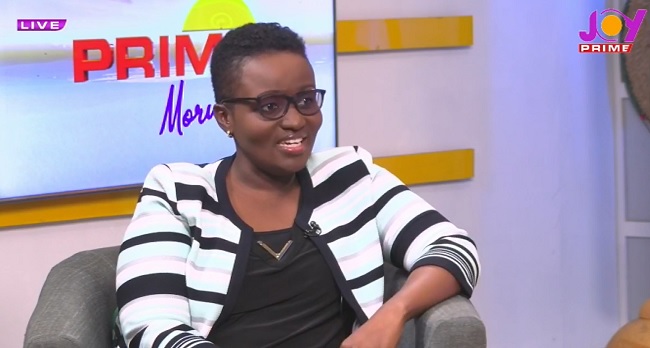A specialist radiologist at the Korle Bu Teaching Hospital (KBTH) and Euracare Ghana Hospital, Dr Dorothea Anim, has said that women of African descent stand a higher risk of getting fibroids.
According to her, research has led to the realisation that women, right from their reproductive and menstrual ages, are exposed to fibroid disease.
About 70% of women develop fibroids in their lifetime.
Dr. Anim also revealed that fibroid disease predominantly affects people with black skin as opposed to caucasians.
She, therefore, believes intensifying awareness in black communities, especially in Africa, can help women find solutions early.
The radiologist made these comments in an interview with Prime Morning co-host Asieduwaa Akumia.
"Literature even says that people of African descent are more at risk than anybody else. So if you took ten people globally from any part of the world and they were all of African descent, eight out of ten will have fibroids. So it is something that is very peculiar to black skin, and that is why it is important to talk about it," she said.
Dr. Dorothea Anim also pinpointed some of the leading causes and symptoms of the fibroid disease.
She mentioned that frequent urination, back, leg, and abdominal pains, bloating, heavy periods, and infertility problems are the leading symptoms of the fibroid disease that women should be aware of.
"As fibroids grow, they tend to compress structures around them because they grow on the pelvis, which is the lower part of the abdomen. Frequent urination, constipation (going two to three weeks without passing stool), pain, and swelling in the leg are all symptoms and problems a fibroid can cause. Fibroids can also affect the menstrual cycle (heavy, frequent, and prolonged menstrual periods) and lead to infertility problems," she said.
She also advised women to be on the lookout for these symptoms and report them to the doctor as soon as possible for early detection and treatment for their own safety.
Dr. Anim further explained that, though there are many treatment options put in place for the removal of fibroid in the body, a minimally invasive option has been introduced to make the removal process easier and faster.
According to her, the minimally invasive way is very effective and has minimal pain involved. The minimally invasive way does not require the removal of a fibroid by cutting up a part of the body. Unlike the surgical option, which requires the opening of a part of the body to take out the fibroid and takes a while to fully heal.
Dr. Anim explained that the minimally invasive option takes at least an hour and, in severe situations, can extend to three hours. Although the minimally invasive option is cost effective, she advised women to choose it because it is easier and faster.
Latest Stories
-
Engr. Kwame Adu-Mante celebrates professional milestone with IET Ghana
11 minutes -
Elizabeth Amoaa’s quest to empower women, transform lives and raise voices
4 hours -
Gauff beats Sabalenka to win French Open title
4 hours -
Deputy Finance Minister urges diasporans to continue sending remittances despite cedi appreciation
4 hours -
Asante Mamponghene’s burial rites attract thousands of mourners
5 hours -
“The job was waiting for me”: MTN Ghana CFO shares journey into telecoms
5 hours -
Frema Foundation Launches ‘Dignity in Bloom’ initiative to tackle period poverty in Ashanti Region
6 hours -
Mayor of Accra calls for renewed commitment to climate action as city commemorates June 3 disaster
6 hours -
Declaration of assets: Special Prosecutor should lead call for asset publication – Dafeamekpor
6 hours -
Empower360 completes third training session for 30 young women under Ghana Grows Program
7 hours -
Sudan: A new gov’t amid escalating military-political conflicts and a deepening humanitarian crisis
7 hours -
National Vaccine Institute makes impressive strides, activate measures for drug production
7 hours -
Housing Ministry signs MoU for water exploration in Ghana
7 hours -
Tree for Life initiative takes off
8 hours -
FDA destroys counterfeit pharmaceutical products worth GH₵42m
8 hours

